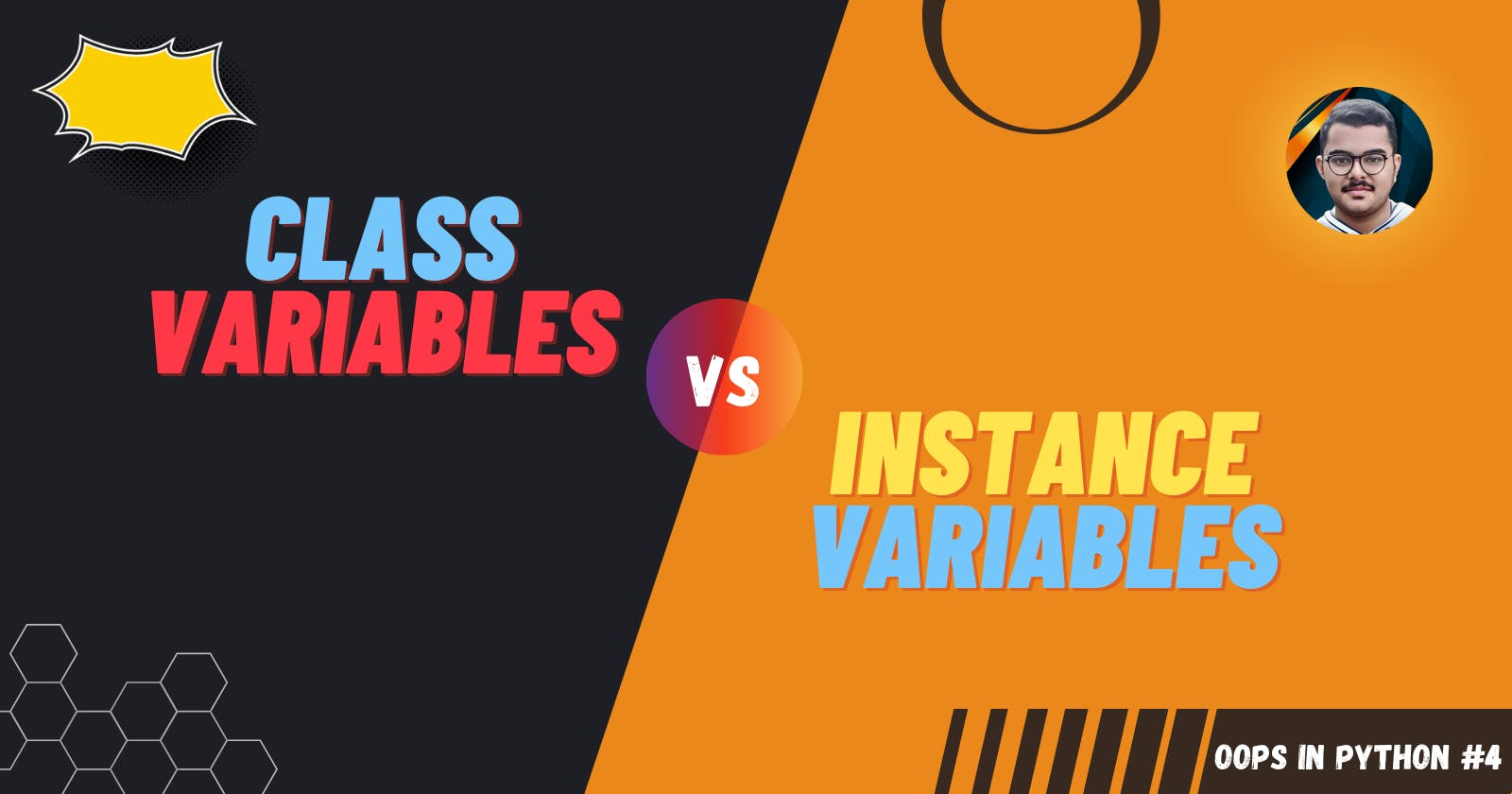Class Variables vs Instance Variables
Understanding the difference between these types of variables is crucial for writing efficient and maintainable code.
Table of contents
Introduction
In Python, variables can be defined at the class level or at the instance level. Understanding the difference between these types of variables is crucial for writing efficient and maintainable code. So, let's just dive into it !!
Class Variables
Class variables are defined at the class level and are shared among all instances of the class. They are defined outside of any method and are usually used to store information that is common to all instances of the class. For example, a class variable can be used to store the number of instances of a class that have been created.
class MyClass:
class_variable = 0
def __init__(self):
MyClass.class_variable += 1
def print_class_variable(self):
print(MyClass.class_variable)
obj1 = MyClass()
obj2 = MyClass()
obj1.print_class_variable() # Output: 2
obj2.print_class_variable() # Output: 2
In the example above, the class_variable is shared among all instances of the class MyClass. When we create new instances of MyClass, the value of class_variable is incremented. When we call the print_class_variable method on obj1 and obj2, we get the same value of class_variable.
Instance Variables
Instance variables are defined at the instance level and are unique to each instance of the class. They are defined inside the init method and are usually used to store information that is specific to each instance of the class. For example, an instance variable can be used to store the name of an employee in a class that represents an employee.
class MyClass:
def __init__(self, name):
self.name = name
def print_name(self):
print(self.name)
obj1 = MyClass("John")
obj2 = MyClass("Jane")
obj1.print_name() # Output: John
obj2.print_name() # Output: Jane
In the example above, each instance of the class MyClass has its own value for the name variable. When we call the print_name method on obj1 and obj2, we get different values for the name.
Summary
In summary, class variables are shared among all instances of a class and are used to store information that is common to all instances. Instance variables are unique to each instance of a class and are used to store information that is specific to each instance. Understanding the difference between class variables and instance variables is crucial for writing efficient and maintainable code in Python.
It's also worth noting that, in python, class variables are defined outside of any methods and don't need to be explicitly declared as class variables. They are defined at the class level and can be accessed via class_name.varibale_name or self.class.variable_name. But instance variables are defined inside the methods and need to be explicitly declared as instance variables by using self.variable_name.
Conclusion
Well, that's a wrap for now!! Hope you folks have enriched yourself today with lots of known or unknown concepts. I wish you a great day ahead and till then keep learning and keep exploring!!

